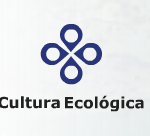
Cultura Ecológica is a non-governmental organization with the mission of contributing to the development of an ecological culture in Mexico. Cultura Ecologica works to increase the public's awareness of the tools necessary for responsible participation in the environmental decision making process. Cultura Ecologica aims to disseminate environmental information and promote access to information, transparency, participation, and environmental access. The organization also aims to use environmental education as a means of fostering social awareness while also promoting the inclusion of the environmental variable in social, working, and everyday life. Cultura Ecologica is working to help integrate and develop environmental databases on Mexican legislation and standards, develop strategies for environmental education and social participation, and perform research and actions regarding the Principle 10 of the Rio declaration.